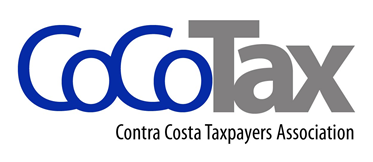Contra Costa Taxpayers Association
VICE president's report
Summary of Legislature of the State of California v Weber June 20, 2024
Petitioners filed a request for writ of mandate to bar the Secretary of State from placing the Taxpayers Protection Act (TPA) on the November 2024 general election ballot. Petitioners contended the TPA attempts to revise the California Constitution and is invalid because it would seriously impair and transform essential government functions.
The question before the Court is whether the measure may be validly be enacted by initiative. The Court concluded the measure would revise the Constitution without complying with the appropriate procedure. The initiative changes would substantially alter the basic plan of government and instead it is governed by the procedures for revising the Constitution. The court issued a Writ of Mandate directing the Secretary to refrain from taking any steps to pace the TPA on the November 5th general election ballot.
The TPA expands State statute to every state law that is not an exempt charge and deletes “Except statutes providing for tax levies for usual current expenses” of the State and every state exempt charge would be subject to referendum. The term state law was defined to include state regulation, state executive order, state ruling, state opinion letter or other legal interpretation adopted by the legislature or executive branches of state government. The court analyzed each section of the TPA. The analysis found that it appeared from the face of the TPA that the measure’s sections would substantially alter the basic governmental framework set forth in the Constitution and would effect an unlawful revision. The TPA included a roll back provision that would void any state or local tax or exempt charge adopted after January 1, 2022 if not adopted in compliance with the TPA requirements within one year of the TPA effective date.
Revisions first require a supermajority vote of both houses of the Legislature or require submission at a general election the question whether to call a convention to revise the Constitution. If the majority vote yes, within 6 months the Legislature shall provide for the convention. The proposed revision (approved by the convention) shall be submitted to the electors. If approved by a majority of voters it shall take effect on the date stated in the measure or 5 days after certification of the election by the Secretary of State.
Following the line of cases on revision, whether the proposed initiative is an impermissible revision because its effect would substantially alter the purposes and attain objectives clearly beyond the lines of the current Constitution is one that makes far reaching changes in the nature of our basic government plan. The collective impact of multiple provisions may accomplish such a change. The court proceeded by considering the TPA as presented, as a whole. It would transform 1) the Legislature’s power to levy taxes, 2) the balance of power among the Legislature and the executive agencies and the electorate over the setting of fees, and 3) the authority of local government agencies to set fees without legislative approval or possibility of referendum.
The TPA would transform the process of levying state taxes that has existed since the state’s founding. This transformation weighs significantly in favor of finding the TPA would affect a constitutional revision. The referendum power is subject to certain exceptions for tax levies or appropriations for usual current expenses of the state to prevent disruption of its operations to provide for the public welfare are eliminated. The TPA would strip away the Legislature’s authority to promptly raise revenues when necessary.
The TPA shifts power between the executive branch and the legislative branch. The TPA states the state law would include state statutes, regulations, executive orders, resolutions, rulings, state opinion letters or other legal interpretation adopted, excluding only the UC system, Cal State Universities and Community colleges. The state and local agencies would lose the power to do much of the work they do under legislatively delegated authority, assessing fees, charges for health care, and expand the referendum power to encompass all fees imposed by state and local agencies. The TPA would significantly rework the current balance between legislative and executive functions at the state and local level.
The TPA transforms local revenue raising by requiring that exempt charges go through legislative bodies rather than the administrative processes. Local governments may delegate their legislative authority to their executive or administrative officers and such delegation has become imperative in light of the ever increasing. multiplicity and complexity of administrative affairs. In sum, the TPA would affect all local revenue measures, big or small, essential or nonessential to an extent that leaves no aspect of government untouched.
We decide only whether the measure taken as a whole would accomplish a revision. We conclude that the TPA is a revision on its face. It would fundamentally restructure the most basic of governmental powers and would clearly accomplish such far reaching changes in the nature of our basic governmental plans as to amount to a revision of the Constitution. The TPA exceeds the scope of the power to amend the Constitution via a citizen initiative. It is within the people’s prerogative to make these changes, but through the process for revision set forth in Article XVIII of the Constitution.
How to Read Your Contra Costa Tax Bill
past president's Reports
How Proposition 47 has Affected Law Enforcement Prosecution
Ballot Measures as of Winter 2024
Swing_BallotMeasure_2023_9-21-23.pdf
VP Report - Last Minute Legislative Action - Summer 2023.pdf
Speaker Presentation on CA State Ballot Gambling Measures.pdf
Vice President's Report - February 2023
